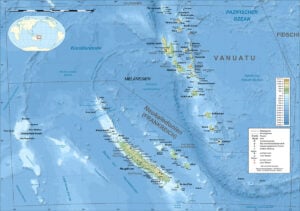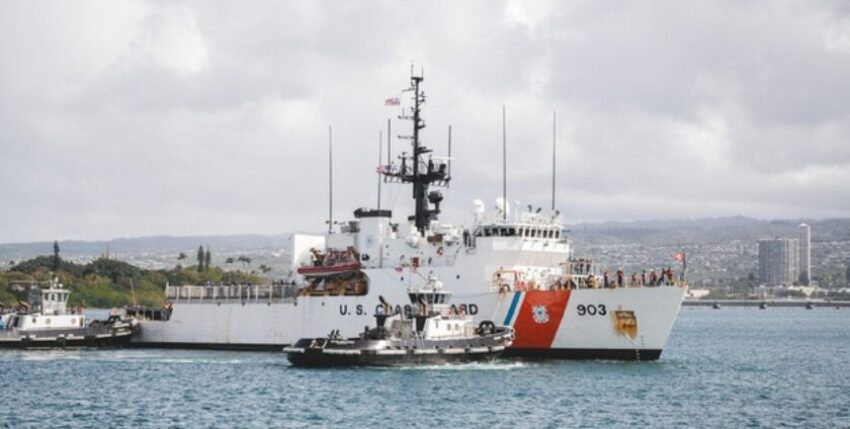After six Chinese fishing boats violated the fishing laws of the Republic of Vanuatu, a group of islands east of Australia, they were inspected by the local police. The special thing about this is that the inspection was carried out from a US Coast Guard vessel, which was patrolling the waters of the Pacific island state for the first time.
The basis for such 'deployments' are bilateral agreements with the USA, the so-called Shiprider Agreements, which allow law enforcement officers of the contracting state to carry out patrols in their territory and in their exclusive economic zone (EEZ) on board US Coast Guard (USCG) vessels. In joint teams, host nation authorities utilise the strength of the US fleet to enforce maritime laws and protect their respective national interests.
The USA has concluded such an agreement with several countries in the Pacific in order to promote the strategy of a free and open Indo-Pacific. These shiprider agreements are also important in combating illegal, unreported and unregulated (IUU) fishing, which is a major problem in the Pacific region. According to an estimate from 2016, IUU tuna fishing costs the Pacific states more than 600 million dollars a year.
Naturally, the Chinese leadership does not like such ship inspections and the Chinese embassy in New Zealand issued correspondingly harsh statements at the beginning of April. The use of shiprider agreements between the USA and Vanuatu, Samoa, Papua New Guinea, Kiribati and Fiji to "carry out law enforcement measures against Chinese fishing vessels" is a violation of international law and the agreements are not binding on China's fishing fleet. China is not obliged to accept law enforcement by countries other than the coastal states in their EEZs.
In the letter, the ambassador went on to explain that China exercises strict supervision over its fishing fleets and has a "zero-tolerance attitude towards illegal fishing" and respects the sovereign rights of coastal states.
How this fits in with Chinese territorial claims, e.g. in the South China Sea, probably remains the secret of Chinese diplomacy.

The commander of the US Coast Guard for Oceania rejected the Chinese ambassador's accusations that their recent inspections of Chinese fishing boats together with the local police were illegal as inaccurate. Bilateral shipping agreements are in accordance with international law. The USCG carries out these inspections in agreement with the host countries protecting their EEZs, he said at a press conference in Honolulu, on the occasion of the return of the United States Coast Guard Cutter "Harriet Lane" (WMEC 903, 82 metres long) from its patrol in the South Pacific.
The "Harriet Lane" has only been stationed in Hawaii since December 2023, with a new role as "Indo-Pacific Support Cutter" for operations in Oceania.
kdk
Source: gCaptain, warontherocks.com








3 responses
Hello Mr Stephenson,
You are right. On re-reading, it is indeed the statement of the Chinese. Apart from that, I completely agree with you and am a loyal reader who greatly appreciates the reports.
Yours, Jochen Schlichte
...that their recent inspections of Chinese fishing boats together with the local police were illegal (surely that should mean legal)
Dear Schlichte, thank you for your comment.
After re-examining the text, I still think it is worded correctly: China is claiming that US ship-rider agreements with the Pacific island states, which are permitted under maritime and international law, are "illegal". China wants to expand its own dominance in the Pacific region and unilaterally declares what is legal and rightful (provided it serves Chinese interests) and what is illegal and must be avoided (which is contrary to Chinese wishes). This negates international agreements that are accepted by the majority worldwide and proclaims China's own sense of justice, which can only be countered by constantly reiterating and enforcing the free movement of ships in international waters (e.g. Taiwan Strait) and peaceful (declared) passage through territorial waters wherever possible. Something we are always very happy to publicise on this platform: Do good and talk about it! Otherwise the current rule-based order will be undermined (!) and very quickly replaced by "false" customary law or the "law of the jungle".
Your editors marineforum
Axel Stephenson